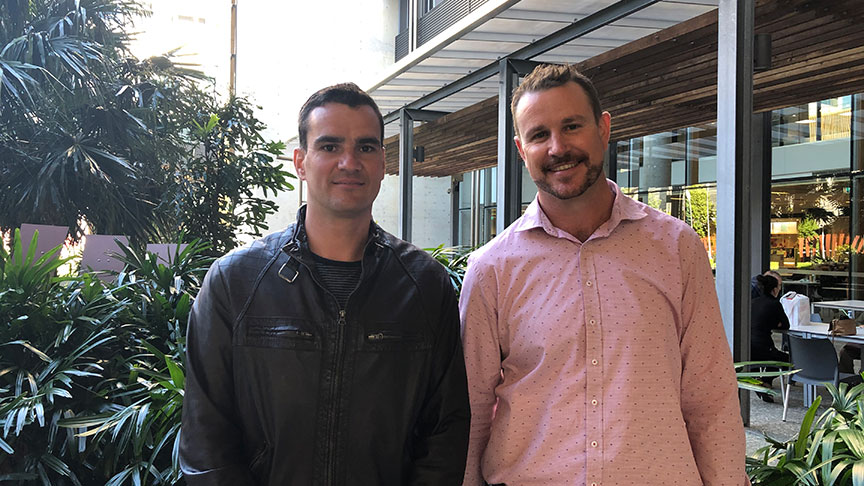
June is Bowel Cancer Awareness Month, a Bowel Cancer Australia initiative to raise awareness of Australia's second deadliest cancer.
Bowel cancer is the deadliest cancer for Australians aged 25–44 and the incidence of young-onset bowel cancer is rising.
Twenty-nine people aged under 50 years will be diagnosed with bowel cancer this week in Australia; a 45-year-old today has the same bowel cancer risk a 50-year-old had 10 years ago.
Sunshine Coast Hospital and Health Service (SCHHS) surgeon Dr Scott McDonald said while the risk of bowel cancer increases with age, the disease doesn’t discriminate, affecting men and women, young and old.
Adolescents and young adults aren’t immune to bowel cancer either. The incidence of bowel cancer in people aged 15-24 years increased by 186% over the past three decades.
“Younger people think ‘I’m too young to have bowel cancer’ and attribute the signs to haemorrhoids or lifestyle factors,” Dr McDonald said.
“They let symptoms go unchecked and the diagnosis often doesn’t come until the disease has progressed to stage three or stage four when treatment is more difficult.”
The good news is nine out of 10 cases of bowel cancer can be successfully treated if found early.
“If you are experiencing any unusual symptoms such as a recent change on bowel habits, any form of bleeding from the bottom or unexpected weight loss don’t delay in talking to your GP,” Dr McDonald said.
“These symptoms may be due to other medical conditions but can be suggestive of bowel cancer,” he said.
Shane’s story
Sunshine Coast local Shane was 31 years old when he was diagnosed with bowel cancer.
Shane said he was ‘a pretty ordinary knock-about type of bloke’ who tried to keep fit and healthy; a mechanic by trade, working as a train driver.
“Every now and then at the end of nightshift, I’d have a lazy meal like pizza or a burger, and it would make me feel a bit ordinary and play with my guts for a day or two – then everything would be fine again,” Shane said.
“I was getting a bit more fatigued than normal, but we had a 6-month-old daughter, and I was doing shift work.
“Everything was able to be dismissed and explained away.
“My partner is a nurse and she thought it wasn’t quite right, so I saw a GP.
“I’d never really had a GP—I’d go to the doctor if I cut my finger and needed a few stitches; that was the extent of my medical history.
Shane said his GP’s vigilance saved his life when she referred him to a gastroenterologist.
“She asked me how I felt about having a colonoscopy. I said, ‘Just go for it, if you think that’s how we can rule out the nasty stuff, let’s do that and we can worry about diet later’.
“I was stage three, so we were bloody lucky we got it when we did; if I had dismissed it any longer it could have been completely different,” Shane said.
“Don’t dismiss anything with your guts, always get checked out.
“Don’t take no from a doctor; if it doesn’t feel right it probably isn’t right.
“Don’t be scared; a lot of people say, ‘You’ve been through hell’, but the other option would be a whole lot worse.”
Shane said he is forever grateful to surgeon Dr Scott McDonald and cancer care coordinator Sharna Hobbs.
“I’ve had a rough trot and those guys have been in control the whole time and I’ve had every faith in every single one of their decisions.
“Scott is an absolutely amazing doctor and surgeon and human in general, one of the best going around.
“We had a second child because of Sharna; it was her who suggested we try before I started treatment, knowing we may not be able to have kids further on.
Shane said he is looking forward to starting in a new job as a wardsman with the SCHHS.
“After my experience I wanted to be part it; every step of the way I’ve felt supported and I’m really looking forward to being part of that team for someone else somewhere along the line.”